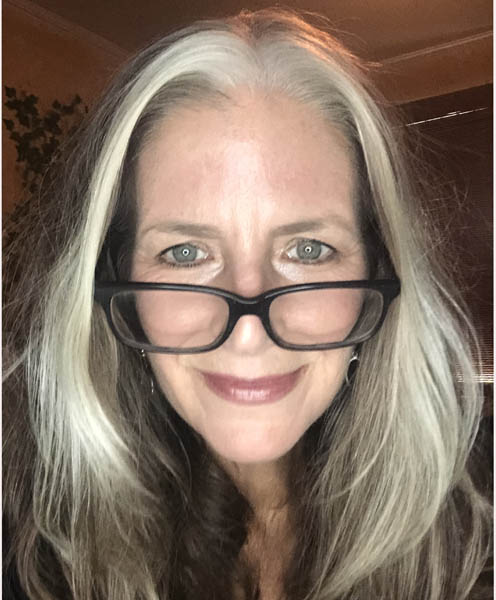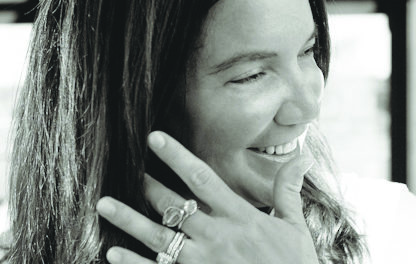Did you catch Beaufort on 60 Minutes last week? The segment about our recent adventures in book banning?
My Facebook feed erupted in praise following the episode. Seems it was widely loved by locals and non-locals alike. All over social media, the Beaufort community received kudos for, as one outsider put it, “handling the book banning crisis so well.”
(Considering everything going on in the world, “crisis” seemed a bit hyperbolic to me, but I digress.)
Despite the mostly positive feedback, not everybody was charmed. A bit of research revealed that Moms for Liberty, the national organization featured prominently in the segment, had seen it as a “hit piece.” They claim Scott Pelley edited their interview to make them look evasive and foolish.
Me? I found the segment pleasing on one level, but frustrating on another. Maybe it’s just because I’ve followed this story closely – our other paper, The Island News, has been reporting on it since the beginning – but to me, the 60 Minutes segment felt like a mere scraping of the surface, at best. At worst, it felt like a pre-fab national narrative looking for a lovely locale – Beaufort – in which to set itself.
And 60 Minutes did make Beaufort look lovely – not just pretty, but smart and thoughtful. Small southern towns and their citizens aren’t always afforded that courtesy by major media outlets, so for that, I was grateful.
I was grateful to 60 Minutes for applauding the way our community rose to the occasion in question, setting up committees of volunteer citizens and educators to read and review the 97 books that were challenged and temporarily pulled from our school libraries.
Still, at times the segment felt, to me, like a glorified puff piece in service to a “moral” that most Americans already agree on: “Book banning is bad.” I had been hoping for more.
For instance, it was interesting to hear from the founders of the aggrieved Moms for Liberty, but why didn’t we hear from the community members who initiated the book review process here in Beaufort County? It would have been helpful to hear their actual concerns about the books under review, from their actual mouths. Instead, we got the flustered and defensive “Moms,” who aren’t from around here – and who claim their answers were manipulated in editing – appearing to dodge the question about those concerns. So it never really got answered, though Scott Pelley’s raised eyebrow spoke volumes. He clearly held the “Moms” in contempt. Fine, but I wanted to hear why.
And I’d have loved some discussion about how books are selected for school libraries in the first place. This is a mystery to me. Maybe the books with violent and/or sexually explicit passages – the ones pulled for five years here in Beaufort – were selected by media specialists for good reasons. Why weren’t those reasons explored? And where were the literacy-advocating teenagers from DAYLO who were interviewed by 60 Minutes months ago? Why didn’t Pelley mention the chickenfeed-tossing incident at the school board meeting?
In short, the whole story just felt sanitized to me – stripped of its grit, detail, debate, and local color. Again, it did make Beaufort look beautiful – especially compared to the Moms for Liberty – but the book banning issue here has had its ugly moments, too. Where were those?
The segment ended with a voiceover meant to inspire, a quote from a book called The Fixer: “There are no wrong books. What’s wrong is the fear of them.” It’s a nice line, but I don’t really believe it. Do you? As a lifelong reader, I believe there are some wrong books out there. There are good books and bad books and everything in between. Clearly, we should all be free to read any book we want, but not every book belongs in a school library. Why can’t we talk about that candidly?
It just feels like one more dishonest conversation we’re having in this country, where we all talk past each other, but never to each other – those of us who are talking at all, that is. I don’t know anybody who fears a book, but I know plenty of people who fear being labeled “book banners” by one vocal group, or “groomers” by another, so they just keep their heads down and their mouths shut.
A couple of years ago, I sparked a cautiously lively discussion on my Facebook page, which I revisited while working on this column. At the time, there was lots of book banning chatter in the air – breaking down along the usual lines – and I posted the following:
“What is your definition of ‘book banning’? Is it when a rural Tennessee school board removes Pulitzer Prize winner ‘Maus’ from its 8th grade curriculum because of rough language, violence, and nudity? Is it when a Seattle school board removes Pulitzer Prize winner ‘To Kill a Mockingbird’ from its required reading list, because they see Atticus Finch as problematic… even racist? Maybe it’s when Amazon kills a paid ad campaign for ‘Irreversible Damage: The Transgender Craze Seducing Our Daughters’ – named by The Economist as a Book of the Year – one week before publication, and Target (temporarily) refuses to sell it? I would submit that none of these books has been ‘banned’ and each has undoubtedly grown its readership recently (with the possible exception of ‘Mockingbird,’ which is perennially popular). I would also submit that censorship is happening all over, so we should stop pretending it’s a one-party phenomenon.”
Obviously, I’ve been grappling with these questions for a while, so I was hoping 60 Minutes would bring something new and illuminating to the conversation. I wanted the producers to go deep, examining all the angles of a complicated issue. They didn’t. But they did craft a delightful narrative about Beaufort that will probably do wonders for our tourism and retirement industries, so there’s that.
It occurs to me – not for the first time – that I probably expect too much of our public discourse. I expect everybody to be as irritated (okay, borderline despairing) as I am by the childish conversations we have – conversations that ultimately boil down to shouting matches between “groomers” and “book banners,” “wokesters” and “Trumpsters,” “reds” and “blues,” etc. etc. It’s all just so reductive and dehumanizing and society-shredding. I dream of a day when people stop viewing everything in public life through the blinding lens of these bloody binaries. A day when people genuinely listen to each other and learn from each other, instead of seeing each other, and treating each other, as cartoonish caricatures.
To borrow from 60 Minutes’ famous intro, I want “this story and more . . . ”
And I want it all wrapped up in a tidy, 13-minute package. With no commercials.






